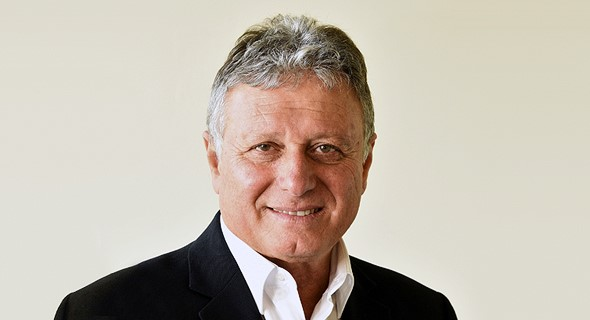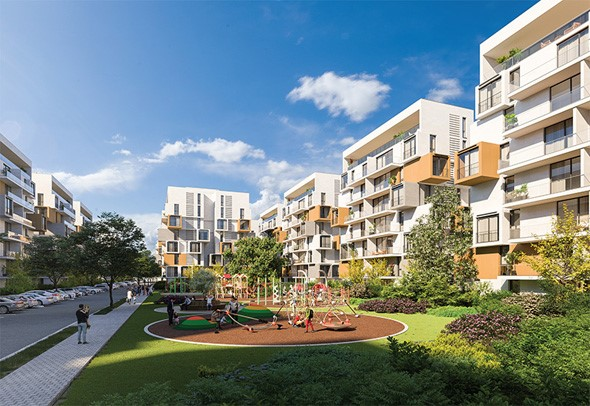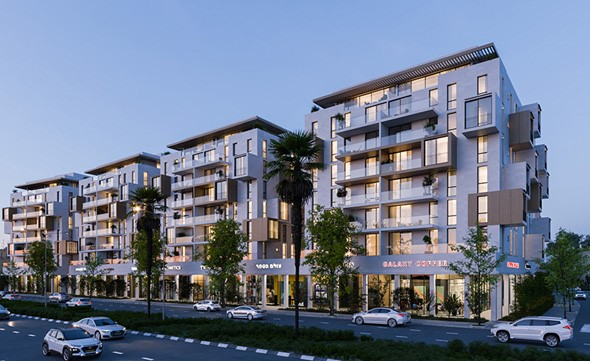Calcalist, Ronen Niv, 19.11.2020
In Bnei Brak, the most densely populated city in Israel with about 205,000 inhabitants, urban renewal plays a key role in increasing the supply of housing for the coming years. In fact, already today about 80% of the construction in the city is carried out as part of urban renewal projects. However, after years in which TAMA 38 projects set the tone, now evacuation-construction projects in entire complexes are gaining momentum.
"In a city without the potential for new construction on vacant land, all residential balances are in urban renewal," explains Bnei Brak Mayor Avraham Rubinstein. According to him, "the preference for the use of NOP 38 over evacuation-construction has changed, with today the trend being for evacuation-construction from the ground up. This is so as not to create a beautiful project on the one hand, but with shaky ancillary infrastructure on the other. "
As an ultra-Orthodox mayor, characterized by families with many children, Rubinstein is well aware of the special challenge he is facing: "Hence the strategic priority for evacuation-construction. Accordingly, the city has adopted a unique model, which requires any project promoted in urban renewal to set aside land on the ground floors for use as public buildings for the area's residents."
The head of the Urban Renewal Authority, Haim Avitan, is also involved in the importance of urban renewal projects in Bnei Brak. The body he heads also published a document this summer dealing with urban renewal in ultra-Orthodox society in Israel, with recommendations for removing social, property and planning barriers, which will lead to an increase in the volume of projects. As part of its conclusions, the report suggested, among other things, raising awareness of urban renewal among rabbis and public leaders, exposing the ultra-Orthodox population to the benefits inherent in evacuation-construction projects, and even publishing a call for proposals to implement technological innovations, with an emphasis on Shabbat elevators.
"Due to its high density, Bnei Brak is one of the cities most in need of urban renewal, and its potential is great," Avitan emphasizes. "However, there are many barriers that characterize urban renewal among the ultra-Orthodox sector, and they must be resolved to accelerate processes. The policy document is the opening shot to address the issue, and we believe we will see more and more urban renewal in Bnei Brak and other ultra-Orthodox cities in the coming years."

Creative thinking
The entrepreneurs working in Bnei Brak are also involved in the diagnoses of the mayor and the head of the government authority for urban renewal. "Only evacuation-construction projects in entire complexes can provide comprehensive solutions for Bnei Brak, both in terms of building renovation and infrastructure and envelope," says Assaf Harash, CEO of the Jerusalem Renewal Company, one of the largest evacuation-construction players in Bnei Brak. -4,300 housing units in various stages.
"Whoever wants to operate in Bnei Brak must adapt to its rules of the game and the unique needs of its residents, such as building a sukkah balcony for each apartment, and other customized planning solutions. These things make projects more complex and require us to think creatively, alongside continuous, sensitive and patient dialogue with The tenants. "
The same successful interaction with tenants is what led the Jerusalem Renewal Company to expand the sector's boundaries from the capital, where its core business is located, to the large ultra-Orthodox city in Gush Dan. "When the owners of Bnei Brak apartments asked us to take the reins and promote evacuation-construction projects, we agreed to listen. They are actually the ones who harnessed us to the process," he recalls softly. "When we examined the area, we discovered that Bnei Brak and Jerusalem have quite a few similarities, which made our integration quick and smooth."
Indeed, the Jerusalem Renewal Society soon discovered that the experience they had gained in interacting with tenants in Jerusalem paved the way for a revolution similar to the one they had done there - even in Bnei Brak. The similarities between the populations and the fact that the company's name is passed on by word of mouth as someone who is able to "speak" to the ultra-Orthodox audience in his language and provide him with housing solutions that suit his needs - all allowed him to start several projects in Bnei Brak in a short period of time.
Upgraded living experience
An example of a Bnei Brakit-rooted neighborhood that actually adopts the evacuation-construction approach is Tel Giborim, the first buildings of which were built in the 1940s and are bounded by Jabotinsky Road in the south, Ben-Gurion Street in the west, Abuhatzira Street in the east and Abba Hillel Road in the north. . In Tel Giborim, the Jerusalem Renewal Company is currently promoting four evacuation-construction projects, in the framework of which more than 650 old housing units will be demolished, with about 2,000 new housing units taking their place.

The project at the intersection of Yonatan and Menachem Begin streets Imaging: Alex Lubimov
One of the intriguing projects of the company, which has already been approved by the local committee, is the one promoted in the Yonatan 25-1 and Menachem Begin 2 complex, where 284 apartments will be demolished and replaced by 29 modern buildings with about 870 housing units. Adv. Itamar Panz from the Solomon Lifshitz firm is representing the apartment owners in the project. According to Harash, "The project will combine residential, commercial and public buildings, and will also include open spaces for the well-being of the residents. Added value to the project, and in fact to all of our projects in the neighborhood, lies in its transportation accessibility to the light rail and dozens of bus lines that run along the Jabotinsky axis. There are also many employment opportunities in the area, including the BBC complex and the stock exchange complex, which are just a short walk away. "
Another project that takes place is Menachem Begin 18-8, Dov Gruner 5-1 and Derech Jabotinsky 27-15. The project includes the construction of about 360 housing units in eight modern buildings, replacing the existing 124 housing units. Here, too, great emphasis is placed on mixing uses. The project is under the authority of a local committee, and is currently in the process of preparing the documents for submission to committee members.
The Jerusalem Renewal Company is leading two more projects in the same area, where the signing of the apartment owners is currently being completed. The first project is in the area that unites the buildings on Menachem Begin 34-30, Dov Gruner 6-2 and Derech Jabotinsky 35-29. The project currently includes 120 housing units, and after the completion of the works will grow to about 360 new housing units with commercial centers, public buildings and spacious gardens. A similar concept of mix of uses characterizes the project on 62-58 Maccabim, Rabbi Brut 17-1 and Abuhatzira 10-6, with the number of housing units in this complex tripled - from 190 to about 570.
The promotion of these projects in the planning committees is entrusted to the firm of Bar Levi Dayan Architects, headed by the architect and urban planner Eden Bar, who has decades of experience working in Bnei Brak.

The project at the intersection of Menachem Begin-Dov Gruner and Jabotinsky streets Imaging: Alex Lubimov
"We also allow ourselves to take on projects in significant volumes, which require a broad vision and can really produce an upgraded residential experience for the tenant and change the character of the neighborhood for the better," Dahar explains. "The unique combination that makes up the Jerusalem Renewal Company gives us broad capabilities both in the field of project promotion with the apartment owners and in front of the planning and execution authorities - which ultimately gives the tenant one address all the way."
The Jerusalem Renewal Company is owned by two long-standing and renowned entities in the field of entrepreneurship and construction in Israel: the Urban Renewal Company and ISA GROUP. The Urban Renewal Company is one of the leading and most stable in Israel, with experience in leading about 30 successful projects and more than 6,000 housing units throughout the country, some of which are already populated. In the next three years, the company is expected to build at least 2,000 housing units each year, with a total volume of billions of shekels. Notable projects are Bela Guardia 68-64, which is currently inhabited, and Bela Guardia 28-24, which is in preparation for the permit, both in Tel Aviv. Two more projects, at 153-151 Haroeh Street in Ramat Gan and 6-4-2 Ben Gurion Street in Givat Shmuel, are going on the market right now. It is in the permit stages, with, needless to say, another long line of projects.
ISA GROUP specializes in the development, construction and development of real estate for over 20 years. Offices and hotels. Notable projects of the company are JE in the Schneller complex in Jerusalem, the Sha'ar Ha'ir towers in Bat Yam, the Mitzpe Ramot project in Jerusalem, the Migdal Yam in Tirat Carmel, and the flour mill complex in Givat Shaul in Jerusalem - this, as mentioned, along with other projects around the country.



